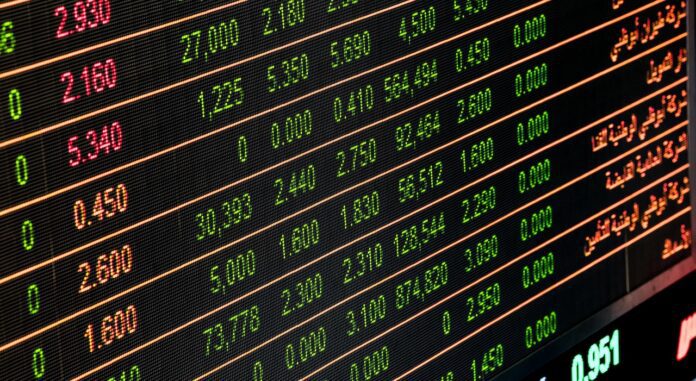The world’s most baffling stock market jargon, according to Google
From ‘bear market’ to ‘dead cat bounce’, what do these mind-boggling terms actually mean?
As global interest in the stock market continues to grow, with the term ‘stock market’ receiving over 2.4 million Google searches globally each month according to AHREFS, new data reveals the industry jargon that’s causing the most confusion.
Stock market trading experts at financial services provider, CMC Markets used Google search data to analyse the most baffling stock market terms, in a bid to help new investors understand their meanings.
Michael Hewson, Chief Market Analyst at CMC Markets said: “It’s not surprising that a lot of people find financial markets terminology baffling. As market professionals we have to get used to new acronyms on a regular basis, and that’s before you take into account the ones that are in regular use. If you’re looking to hone your interest in financial markets, it’s a huge benefit if you can understand the language that gets used on a regular basis“. Click to learn more about the company’s services.
The 15 most baffling stock-market terms, according to Google
Taking a list of 50 popular words and phrases associated with the stock market and pairing each one with the word meaning, the below data reveals the top 15 terminologies that internet users are keen to understand. All the definitions below are provided by cmcmarkets.com.
| Term | Average Monthly Searches |
| ETF | 103,000 |
| IPO | 95,000 |
| Broker | 46,000 |
| Arbitrage | 23,000 |
| ADR | 22,000 |
| Bear Market | 11,000 |
| Bull Market | 7,600 |
| To The Moon | 4,900 |
| Dividend Yield | 3,900 |
| Dead Cat Bounce | 3,200 |
| Tanking | 2,400 |
| Averaging Down | 2,300 |
| Whales | 1,800 |
| Day Trading | 1,700 |
| Margin Account | 1,600 |
Deciphering the stock market jargon
With 103,000 monthly searches, ‘ETF’ is the most baffling stock-market term in the world. So, if you’re keen to find out what an ETF actually is, you’re in luck.
ETF – ETF stands for exchange-traded fund, which is essentially a fund that trades on exchanges, generally tracking a specific index. While stocks are just one instrument, an ETF consists of diversified investments such as stocks, commodities, bonds, and other securities, which are known as holdings. ETFs are often less volatile than individual stocks, meaning your investment shouldn’t swing in value as much, however, there is still a risk in loss of value.
IPO – In second place with 95,000 searches comes another abbreviation: IPO. IPO stands for initial public offering. This is when a private company becomes public by selling its shares on a stock exchange. Companies often issue an IPO to raise capital to fund growth initiatives, raise their public profile, or to pay off debts.
Broker – With 46,000 searches, people are also asking what the word ‘broker’ means. In laments terms, a broker is an individual or firm that acts as a middleman between an investor and a securities exchange. They facilitate trades between individuals or companies and may provide investors with research, investment plans, and market intelligence.
Arbitrage – Another term that’s baffling internet users is ‘arbitrage’. The Cambridge dictionary defines this as ‘the method on the stock exchange of buying something in one place and selling it in another place at the same time, in order to make a profit from the difference in price in the two places.’
ADR – ADR is another frequently questioned abbreviation, according to our data. However, ADRs are simply American depositary receipts for foreign companies that are listed on US stock exchanges. An ADR is a form of equity security, offering US investors the opportunity to gain investment exposure to non-US stocks without the complex task of dealing with foreign stock markets. Many large companies based outside of the US list their shares on US exchanges through the use of ADRs.
Bear Market – Another term that’s proving to be popular is ‘bear market’ which is defined by a prolonged drop in asset prices. Typically, a bear market happens when a broad market index falls by 20% or more from its most recent high. It’s believed that the term originates with pioneer bearskin traders. As the traders hoped to buy the fur from trappers at a lower price than what they’d sold it for, ‘bears’ became associated with a declining market.
Bull Market – On the other hand, bull market is the opposing term to bear market. Bull market refers to a period of time when the price of an asset or security rises continuously by 20% after two declines of 20% each.
To The Moon – Often used by stocks and cryptocurrency traders, the phrase ‘to the moon’ essentially means the price of an asset is continuously growing.
Dividend Yield – The dividend yield is a financial ratio that tells you the percentage of a company’s share price that it pays out in dividends each year. Some investors, such as those who are retired, rely on dividends for their income, meaning the dividend yield of their portfolio could have a meaningful effect on their personal finances.
Dead Cat Bounce – With 3,200 monthly searches, it’s no wonder so many people are asking what ‘Dead Cat Bounce’ means. The saying refers to a temporary recovery in share prices after a substantial fall, caused by speculators buying in order to cover their positions. Derived from the famous Wall Street phrase “even a dead cat will bounce if it falls from a great height”, dead cat bounce is now applied to any case where there’s a brief resurgence following a severe decline. You may also hear this referred to as a Sucker Rally.
Tanking – When you hear the phrase ‘tanking’ or ‘in the tank’, this typically means that a stock has encountered a poor quarterly performance, leading to a price decline shortly after. If someone says their assets are ‘tanking’, it means they aren’t doing great right now.
Averaging down – There is a common strategy called ‘averaging down’ which investors use when their investment decisions go against them. ‘Averaging down’ involves buying more shares after they fall in price, lowering the average cost of all the shares held, in the effort to add value to their portfolio.
Whales – While whales are usually found in the ocean, when it comes to stocks, the term ‘whale’ is a nickname given to investors who have the potential to manipulate the market. A whale can be an individual or company with enough money or power to influence the price of a stock. These individuals usually make huge investments, with their actions causing a huge ‘splash’.
Day Trading – Day trading is a strategy which involves buying and selling shares of stocks within the same day with the intent of profiting from price movements. For example, a day trader may open a new position of a stock at 9 a.m., then close that same position at 2 p.m. These traders rarely hold positions overnight.
Margin Account – A margin account involves borrowing funds from your broker-dealer to purchase securities, using the account as collateral. You will also be required to pay a periodic interest rate to the broker. A margin account can increase your purchasing power however it can also expose you to greater losses.
Credit to https://www.cmcmarkets.com/en-gb/ the source.

| [donate]
| Help keep news FREE for our readersSupporting your local community newspaper/online news outlet is crucial now more than ever. If you believe in independent journalism,then consider making a valuable contribution by making a one-time or monthly donation. We operate in rural areas where providing unbiased news can be challenging. |






















